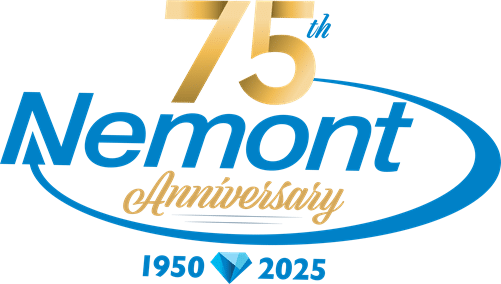Nemont Co-op Membership
Your vote, your voice – Shape the cooperative’s future

Co-op Membership FAQs
The purpose of a co-op is to provide services to you, the member-owners, and indirectly enhance the economic development of rural service areas. Member-owners share equally in the co-op – one member, one vote. Member-owners elect the Board of Directors and, when necessary, vote on specific issues as provided in the co-op bylaws.
You automatically become a member-owner when purchasing a landline or an Internet plan from Nemont. As a member-owner, you build ownership interest in the co-op based on the cooperative services you purchase or use (patronage).
Single – The account is held in one name only and is the only individual that may request or receive information or make changes to the account. A single member may be elected or appointed to the Board of Directors if qualified and votes in the annual meeting; one membership – one vote at the annual meeting.
Upon death, the total unretired capital credit balance may be eligible for retirement.
Joint – Up to two natural persons may share a membership. Examples of joint membership include a husband and wife or father or son. Either member may request or receive information or make changes to the account. Either member, but not both, may be elected or appointed to the Board of Directors if qualified. Either member, but not both, may vote at the annual meeting; one membership – one vote at the annual meeting.
The joint membership terminates upon the death of either member, and fifty percent (50%) of the unretired capital credit balance may be eligible for retirement. The surviving member retains the remaining fifty percent (50%).
Legal Entity: A legal entity may also hold a membership. Examples of a legal entities would be a corporation or a partnership. Don’t hesitate to contact us for more information about this membership type.
The Board is responsible to the member-owners for the governance of the company. The member-owners elect the Board of Directors. The Board of Directors delegates the company’s day-to-day operations authority to General Manager.
Co-ops seek to provide their member-owners with quality service at affordable rates. Ownership in the co-op provides for a voice in the company through the election of the Board of Directors. By using the services provided by the cooperative, member-owners earn capital credits or patronage, which, when retired, may result in a check paid out to the member-owner.
Revenues earned above operating expenses are called margins. At the end of the year, the cooperative allocates a percentage of the margins to each member-owner on a pro-rated basis, according to the total amount the member-owner has paid for telephone and internet services provided by the co-op. These allocations are known as capital credits or patronage. Upon approval from the Board of Directors, these allocations are retired, or refunded, to the cooperative member-owners. In essence, the co-op retires some of your equity. Some people refer to this as “getting capital credits.” The amount each member-owner receives varies, depending on how much equity the member-owner has with the cooperative.
It is important to note that not all services offered by the cooperative or its subsidiaries qualify as services for which patronage is paid or earned by members. For example, wireless (cellular) services are not considered co-op services for business and regulatory reasons.
Retirement of capital credits constitutes an essential part of the cooperative’s public relations effort. With an actual stake in the cooperative’s business operations, evident by its margins, member-owners participate actively in the cooperative’s success.
Capital credits are allocated annually. If a co-op member moves or discontinues service, the former member-owner still receives retirement payments until the account has a zero balance. It’s essential to update your address with Nemont so that when capital credits retire, we send your check to your most current address.
Under the Articles of Incorporation, no interest pays on capital provided by the member-owner.
Uh-oh! We’ve discovered a missing link!
Everything will be fine, but we need your help.
Please send us the url to attach to this link, and we’ll be out of the woods!

